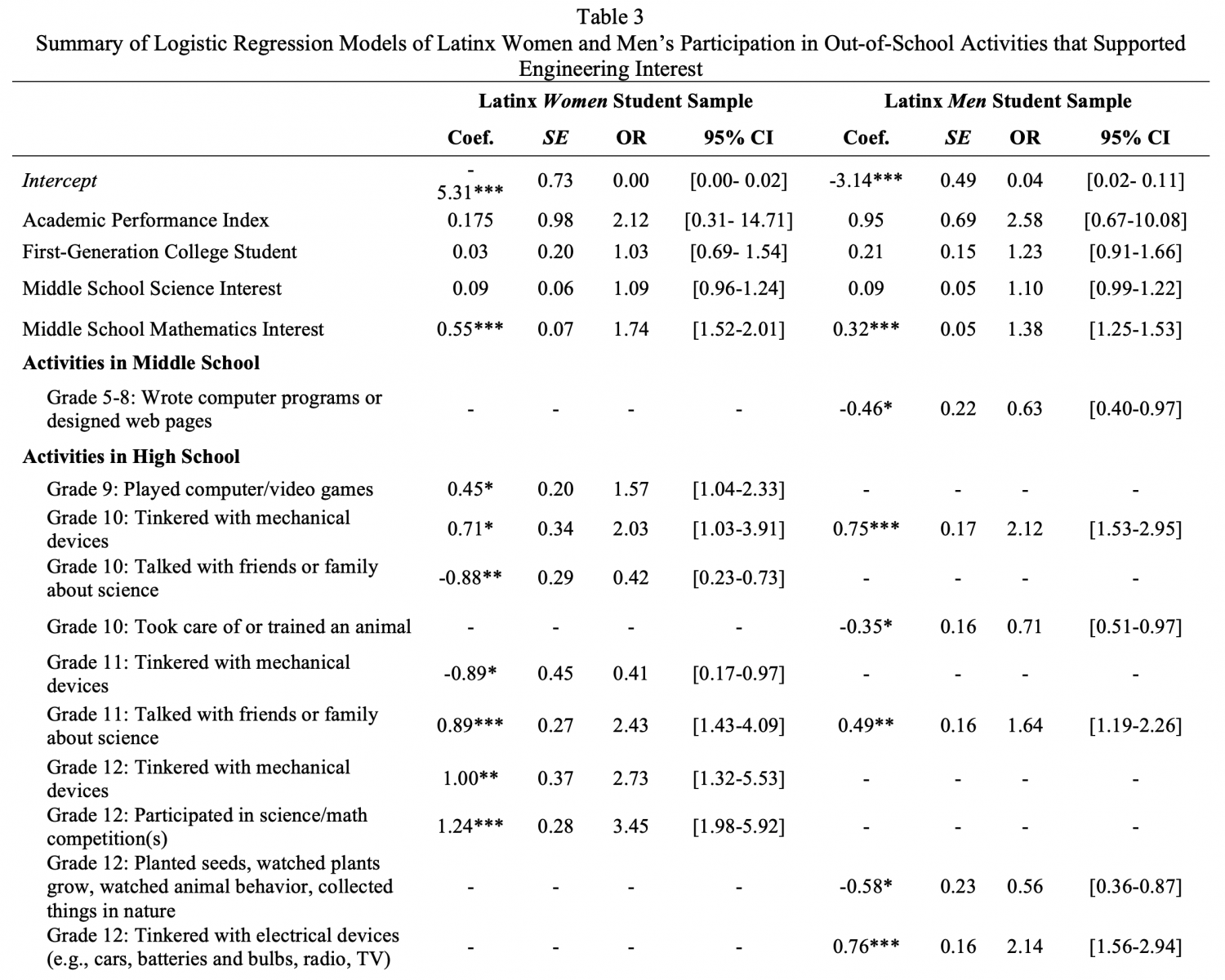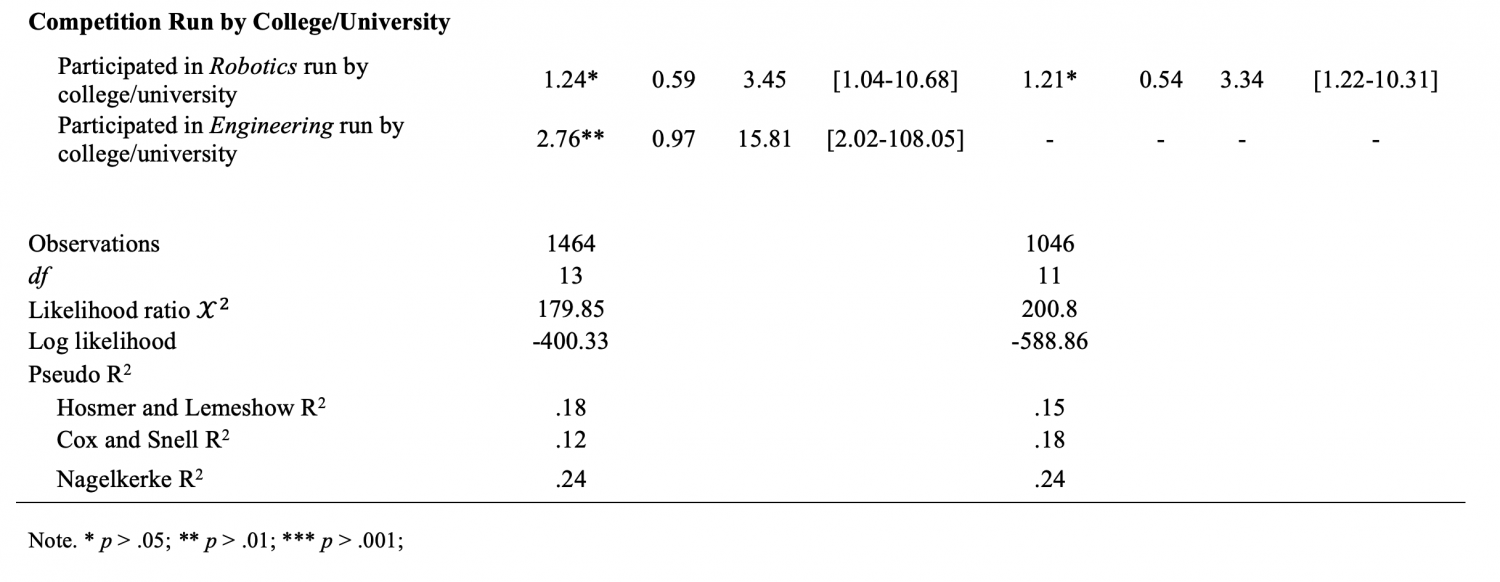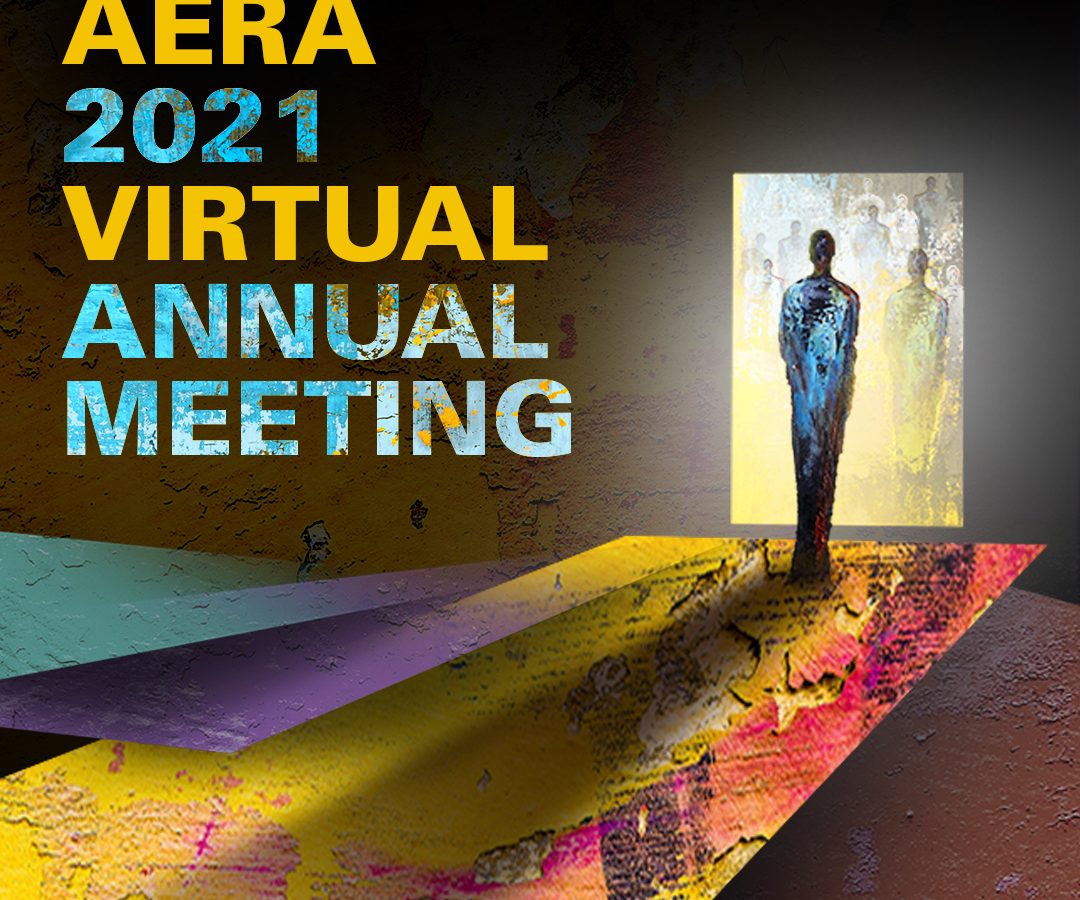Research Proposal Presented in the 2021 American Educational Research Association (AERA) Annual Conference held virtually
Abstract
Out-of-school learning experiences and interest development are important contributors towards pursuing a STEM career. This study sought to understand the out-of-school experiences that triggered and sustained interest to pursue an engineering major for Latinx students. Understanding the experiences that are influencing Latinx students’ pathway into engineering is important to broaden participation. Using a sample of over 3,000 Latinx students, we examined the out-of-school experiences that triggered and sustained interest in engineering during middle school and high school. We found that talking with friends and family about science, tinkering with mechanical and electrical devices supported engineering interest. Participation in STEM competitions had the greatest effect of fostering engineering interest and Latinx women were more likely to engage in competitions than men.
Research Questions
RQ1. Which out-of-school activities, differentiated by grade band (i.e., 5-8, 9, 10, 11, or 12th grade) supported Latinx women’s interest in pursuing an engineering career?
RQ2. Which out-of-school activities, differentiated by grade band supported Latinx men’s interest in pursuing an engineering career?
Method
Data for this study came from a paper-pencil survey administered in Fall 2013 to students enrolled in their first-semester English courses at twenty-three 4-year institutions and four 2-year colleges. The survey was administered in English courses to capture the out-of-school experiences that shaped the career trajectories of students both interested and not interested in STEM. A total of 15,847 students completed the survey, in this paper; in this paper, we focus exclusively on the 3,144 (20%) students who identified as Latinx. Additional demographic information on the Latinx student sample is found in Table 1.

Logistic regression was used to answer our research questions. We were interested in understanding the out-of-school experiences that supported Latinx students’ interest in pursuing an engineering career. Engineering career interest was rated using a 6-point anchored numeric Likert scale. The engineering interest variable was converted to a dichotomous variable grouping students who marked a 4-“very interested” or a 5-“extremely interested” as interested and those who marked a 3 or lower as not interested.
Summary of Findings
Table 3 provides the logistic regression summary of both models. Interest in science during middle school was not a significant predictor of engineering interest for Latinx women or men, a finding that contradicts prior research on STEM interest (see Dabney et al., 2012; Ing, 2014; Maltese and Tai, 2011). However, interest in mathematics during middle school increased the odds of becoming interested in engineering for women (odds ratio = 1.74) and men (odds ratio = 1.38).
The model of Latinx women shows that during middle school, none of the out-of-school activities listed in the survey increased their likelihood of being interested in engineering. Latinx men who participated in writing computer programs or designing webpages in middle school were 0.63 times less likely to be interested in an engineering career. During the high school freshman year, only one activity increased Latinx women’s likelihood of triggering interest in engineering, playing computer/video games (odds ratio = 1.57).
For Latinx men, during their high school freshman year, none of the out-of-school activities listed in the survey boosted their engineering interest. Sophomore year in high school, Latinx women and men were 2.03 and 2.12 times more likely to become interested in engineering through engagement in tinkering with mechanical devices.
For Latinx women, talking with friends and family about science, during the sophomore year decrease their likelihood of being interested in engineering (odds ratio 0.42), while in their junior year, this same activity was 2.43 times more likely to increased their engineering interest. In the junior year, talking with friends and family members increased both Latinx women and men’s likelihood of being interested in an engineering career, 2.34 and 1.64 times, respectively.
Senior year, Latinx women participated in a variety of competitions that subsequently increased their likelihood of being interested in engineering: science/math competition (odds ratio 3.45), robotics competition (odds ratio 3.45), yet an engineering competition produced a 15.81 times higher likelihood of sustaining their interest in pursuing an engineering career. Latinx men reported participating in a robotics competition and began tinkering with electrical devices Senior year, which increased their likelihood of being interested in an engineering career by 2.14 and 3.34 times, respectively.




